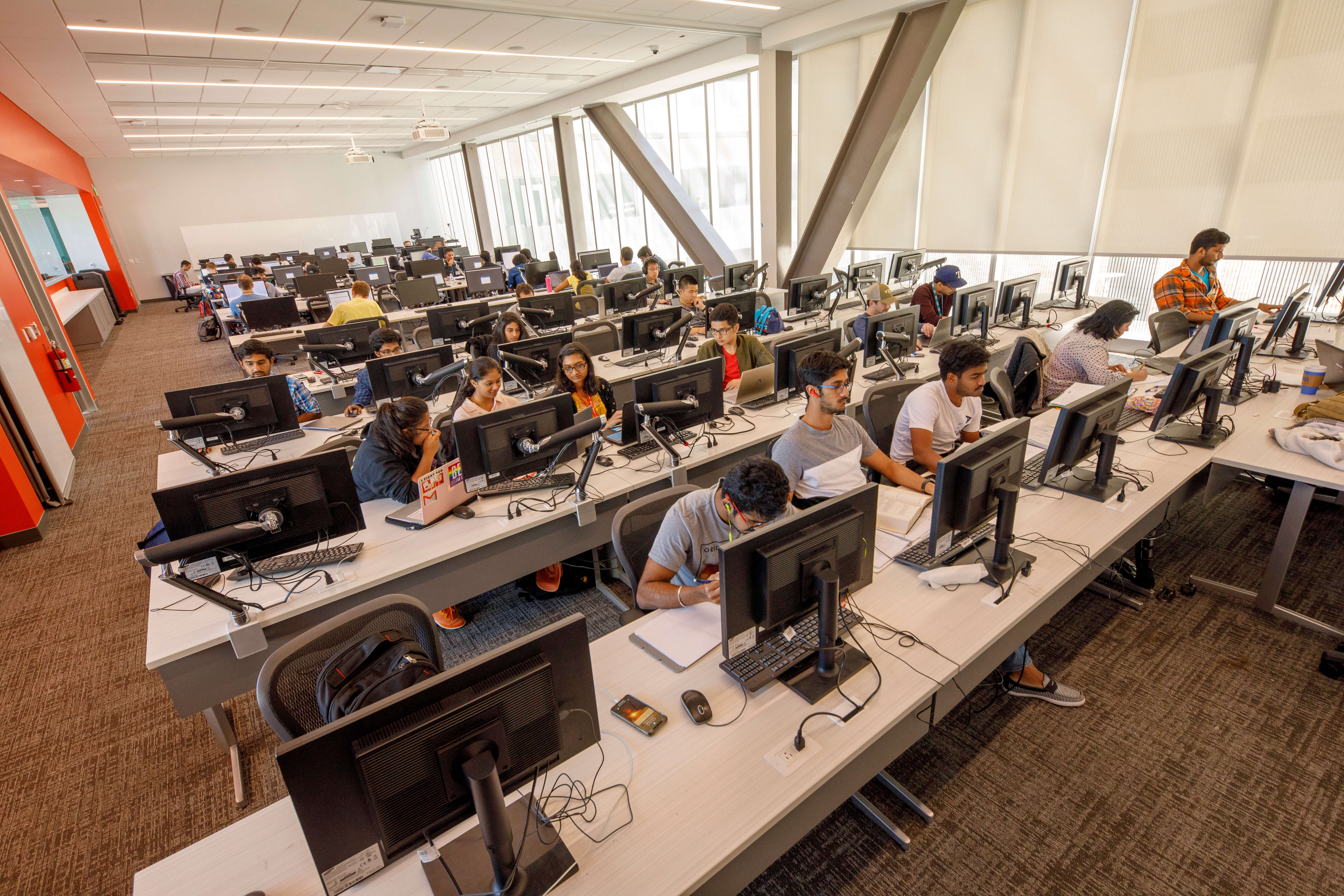
Technology has profoundly changed the way people live their lives. Today, it’s hard to imagine an existence without online shopping, smart home devices, dating apps, studying, social media, gaming, Clubhouse and more.
As more people spend more time online, the amount of data they generate grows. Computers are central to all aspects of our digital lives; as the range of industries, from communications to banking, that relies on them grows, so too do the list of miscreants targeting to misuse or steal their data.
With the Internet of Things fusing computers with objects that can interact with the physical world, cybersecurity attacks threaten to endanger life and property too. Imagine driverless cars or insulin pumps being hacked.
If individuals, governments and companies do not have secure information systems, data falling into the wrong hands can lead to potentially dangerous results. With new solutions to real-world and business-related problems being released on a regular basis, studying a Computer Science degree could put you at the forefront of developing the next big and potentially life-saving thing.
Computer science covers vast swaths of terrain – coding, technical engineering, business processes and communications among just a few. Here are four universities that will help you crack the code to success.
Western Michigan University

Source: Western Michigan University
Western Michigan University (WMU)’s Computer Science Department is at the forefront of international excellence and leadership in education for the computer science professions. The Department is a leading powerhouse of research and teaching activity spanning the breadth of Computer Science, and their courses include Master of Science; Master of Science: Accelerated; Master of Science: Cybersecurity; Doctor of Philosophy.
Keeping computer systems secure is one of the most challenging tasks. On the BSc Cybersecurity course, you’ll study how computers can be used to prevent and solve cyber-crime. To help you rise to the challenge, this BSc provides knowledge in the very latest security
The Department encompasses a wide range of disciplines within the computer science hemisphere including undergraduates courses such as Bachelor of Computer Science; Bachelor of Data Science; and Bachelor of Science: Cybersecurity as well as postgraduate principles, tools and techniques taught by specialist staff. It is designed to train tomorrow’s security professionals, combining fundamental concepts and principles with exposure to new technologies and solutions.
With the dramatic increase in high-profile cyber security incidents reported in the media, the demand for highly skilled security professionals is growing significantly as businesses across the globe seek to protect their networks and data. WMU’s MSc Cybersecurity aims to provide you with the knowledge and practical expertise to evaluate, design and build computer security systems that protect networks and data from cyber-crime or terrorist attack. The Cybersecurity programmes are available online and designed to allow students to work full time while pursuing their degrees.
Dalhousie University

Source: Dalhousie University
Dalhousie University boasts the largest Computer Science and Technology education and research centre in Eastern Canada and is part of Canada’s U15 research intensive universities. Founded in 1997, the Faculty of Computer Science, a premier research institution in IT in Atlantic Canada, is where students develop the deep technical, problem-solving and leadership skills needed to create — or leverage — new computing technologies to empower people, organisations and society.
The faculty’s research strengths in AI, machine learning, big data, human-computer interaction, visualisation, graphics, systems, networks and cybersecurity are present in its undergraduate programmes, such as Applied Computer Science and Computer Science. The latter focuses on the theory, design and application of Computer Science by exploring a wide range of areas including software development, algorithms, networking and artificial intelligence, while the former fuses a deep understanding of technology with in-demand skills such as communications and project management.
At the graduate level, you can opt for flexible and multidisciplinary programme: two research-focused degree programmes (Master of Computer Science and PhD in Computer Science), three interdisciplinary programmes (Master of Digital Innovation), as well as an applied programme offering three degree stream options (Master of Applied Computer Science).
Both undergraduate and graduate programmes are taught by award-winning professors in a varied and extensive lineup of expertise, such as Big Data Analytics, Artificial Intelligence & Machine Learning; Human-Computer Interaction, Visualisation & Graphics; Systems, Networks & Security; Algorithms & Bioinformatics; and Computer Science Education.
These programmes can be customised to personal and career goals. With a location in Halifax — one of Canada’s fastest growing tech hubs and home to tech giants such as IBM, CGI, and Ubisoft — students have access to invaluable experiential learning — such as co-ops and internships — and employment opportunities too.
Dalhousie University believes Computer Science is for everyone — here, the learning, social and working environment is respectful and bias-free; scholarships and programming have been developed to support underrepresented groups within the university. To learn more about the faculty’s education with impact, click here.
University of Texas at Dallas

Source: UT Dallas
The University of Texas at Dallas is known for academic rigour, career focus and social opportunities. It has one mission: to prepare undergraduate and graduate students for productive careers in industry, academia, and government through an outstanding environment for teaching, learning, and research in the theory and applications of computing.
UT Dallas’s Department of Computer Science offers Bachelor of Science (BS) degrees in Computer Science and Software Engineering based on a solid foundation of mathematics that includes calculus, linear algebra, and discrete mathematics. Students are equipped with knowledge in modern programming methodologies, the analysis of algorithms and data structures, and the study of operating systems.
For the graduate programmes, students can choose from a variety of concentrations including operating systems, computer architecture, computer graphics, pattern recognition, automata theory, combinatorics, artificial intelligence, machine learning, internet of things and so forth. These concentrations develop knowledge, technical skills and self-directed learning skills in data science, providing an excellent grounding for working as a data scientist or analyst in industry.
San Diego State University

Source: Getty Images via AFP
Founded in 1897, San Diego State University provides research-oriented, high-quality education for undergraduate and graduate students through its many diverse departments and interdisciplinary programmes in the creative and performing arts, the humanities, the sciences, and the social and behavioral sciences.
The Department of Computer Science offers a BS degree in Computer Science, a Computer Science minor and Geographic Information Science certificate programmes that emphasise the use of information technology in organisations, and aim to empower people with the technical and management skills required to succeed in a competitive market place. The Master of Computer Science programme is underpinned by the latest technologies and strengthened by active collaborations with industry leaders providing practical experience through placements as well as educational partnerships.
At SDSU, these programmes are delivered by highly qualified staff with a long-standing reputation for excellence in teaching in an exciting and challenging environment for learning with modern, well-equipped facilities.
*Some of the institutions featured in this article are commercial partners of Study International







